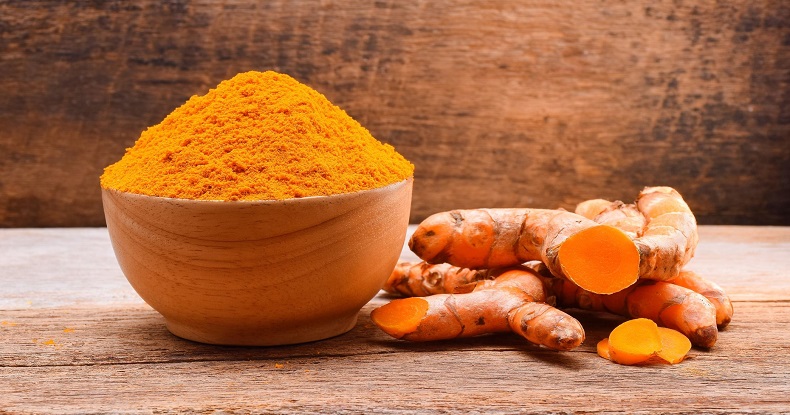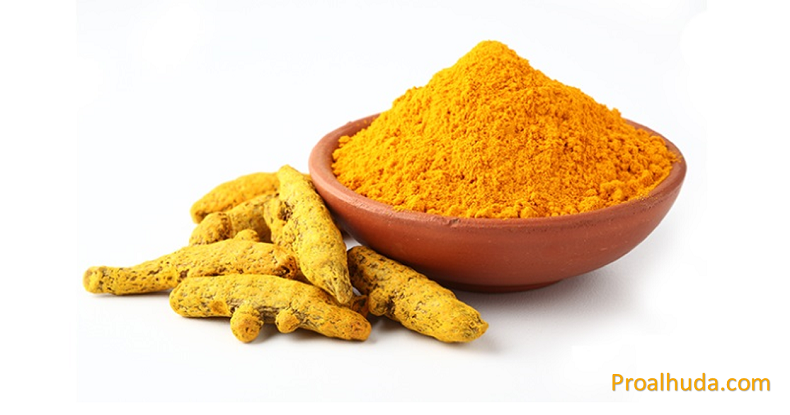Turmeric, a spice widely used in cooking and traditional medicine, offers a plethora of health benefits due to its active compound, curcumin. Curcumin is known for its anti-inflammatory, antioxidant, and antimicrobial properties, making turmeric a valuable addition to your diet.

Turmeric offers numerous health benefits. Here are certain of the key benefits:
Anti-inflammatory properties:
Curcumin, the active compound in turmeric, is renowned for its powerful anti-inflammatory effects. It supports reducing inflammation in the body and alleviates symptoms of chronic inflammatory situations.
Antioxidant effects:
Turmeric is rich in antioxidants, which help fight free radicals and protect the cells from damage. These antioxidants may reduce the risk of chronic diseases like heart disease, cancer, and neurodegenerative disorders.
Boosts immune system:
The immune-boosting properties of turmeric can help strengthen the immune system and defend the body against infections, viruses, and harmful bacteria. This can lead to enhanced overall health and well-being.
Promotes heart health:
Turmeric had linked to improved heart health by reducing cholesterol levels, improving blood flow, and preventing the formation of blood clots. These effects can reduce the risk of heart disease and stroke.

Aids digestion:
Turmeric has traditionally used to alleviate digestive issues like indigestion, bloating, and gas. It can stimulate the production of digestive enzymes, improve gut health, and may even help with conditions like irritable bowel syndrome (IBS).
Supports brain health:
Studies suggest that turmeric may have a positive impact on brain health and may help prevent or delay neurodegenerative conditions like Alzheimer’s disease.
Aids in weight management:
Turmeric may have a role in weight management by boosting metabolism, reducing inflammation, and helping regulate blood sugar levels. It can also promote healthy digestion, which is important for maintaining a healthy weight.
Supports skin health:
It can be beneficial for the skin. Its anti-inflammatory and antioxidant properties may help reduce skin irritation, clear acne, and even improve skin tone. Turmeric-based face masks and creams are widely used for their potential skin benefits.
Antioxidant Support:
Turmeric is rich in antioxidants, which help neutralize free radicals and protect cells from oxidative damage, promoting overall health and reducing the risk of chronic diseases.
Improved Digestion:
Turmeric can aid in digestion by stimulating the production of bile and enhancing the breakdown of fats, leading to better digestive health.
Supports Heart Health:
Curcumin may improve heart health by reducing the risk of heart disease, supporting healthy cholesterol levels, and promoting blood vessel function.

Natural Pain Relief:
The anti-inflammatory properties of turmeric may offer natural pain relief for conditions. Like arthritis, muscle soreness, and general aches and pains.
Immune System Boost:
Turmeric’s antimicrobial properties can help support the immune system and protect against infections.
Blood Sugar Regulation:
Curcumin has shown to help regulate blood sugar levels. Which can be beneficial for individuals with diabetes or those at risk of developing the condition.
Liver Health:
It can aid in liver detoxification and may support liver health by promoting the elimination of toxins from the body.
Anti-Cancer Properties:
While more research needs some studies have shown that curcumin may have anti-cancer effects, potentially inhibiting the growth and spread of cancer cells.
It’s essential to note turmeric offers numerous health benefits. Its absorption in the body can be enhanced when consumed with black pepper or fats like oil. As with any supplement or dietary addition, it’s best to consult with a healthcare professional using turmeric. Especially if you have any underlying health conditions or are taking medications. Incorporating turmeric into your diet can be as simple as adding it to curries, soups, smoothies, or herbal teas for a delicious and health-promoting boost.